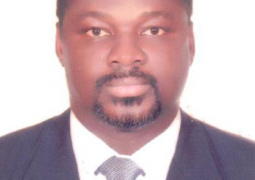The prayers are an interlocutory order to restrain the respondent whether by themselves, their officers, employees, staff, agents, or howsoever otherwise from acting in contravention, or violation of the provisions of the Drug Control Act in relation to the applicants, until further notice of the court.
It was also asking for an order to restrain the respondent whether acting by themselves, their officers, employers, staff, agent or howsoever, otherwise from interfering with the operation of the applicant’s businesses or the enjoyment of its property without a court order.
It was also asking for an order directing the respondent to remove all seizures of and restraints placed on the applicant’s premises and properties on Friday 17 April 2013 until further order of the court, and such further orders as the court shall deem fit to make under the circumstances of the case.
In his ruling, Justice Abi said arguing the application on behalf of the applicant, I.D. Drammeh, learned counsel of the applicant, submitted that the application before the court was set out in the summons on notice and the 4 pronged prayers on the face of the summons.
It was brought pursuant to the constitution and the rights guaranteed to all persons by the constitution’s section 4 of which the constitution emphasises the supremacy of the constitution.
Counsel submitted further that the same constitution in section 5 enables the court to make orders and give directions and section 5(B) confers the right on any person to bring an application where it is alleged that any provision of the constitution is being breached.
She submitted that the constitution guarantees every person charged with a criminal offence a fair hearing within time in section 24(1) and also provides for the presumption of innocence in section 24(3).
The counsel argued that no court order was produced and no documentation was produced to justify the unconstitutional sealing and that even the names of the people who took over the possession were not given.
She said that after closing the premises the respondent then took three employees and charged them with drug offences, detained them, and charged them with drug offences and that the further additional affidavit has a copy of the information attached.
She submitted that even if the applicant was found guilty of the offences now charged, the court still did not have power to do what the respondent did much less the respondent doing it pre-trial.
She submitted that the presumption of innocence is an entrenched constitutional right of every person accused of an offence; that section 22 of the constitution guarantees the right to property; that all laws point to the fact that what was done is wrong and cannot be allowed to continue, and that it is for all the stated reasons that it is imperative that the summons be granted.
In opposing the application, M.B. Abubakar, DDPP, submitted that while the constitution of The Gambia guarantees certain fundamental rights to every citizen, which rights include but are not limited to protection from deprivation of property under section 22.
He submitted that they deposed in paragraphs of their further affidavit in opposition that the premises were seized pursuant to further investigations, which have serious national implications.
Therefore, the national and public interest overrides business interest, which seems to be the basis of the application.
He submitted that no amount of loss, damage or suffering the applicant was likely to suffer from the actions of the respondent would justify compromising the collective interest of the nation.
“I have listened to the heated arguments on this application. I have also read the various affidavits in support and those in opposition before delving fully into considering the merits of the application,” the judge said.
He also said the actions of the respondent complained about are known to both parties and not in contest.
He said the applicant had stated that the respondent since 17 April 2015 took control of their premises, locked out their staff, sealed the premises and placed guards in the premises.
He said it was clear from the foregoing that the whole buildup to the entire saga was the discovery of some suspected substances now confirmed to be cocaine in the consignment of containers imported and being sold by the applicant.
He said it was not in dispute that the respondent is the appropriate authority to deal with matters concerning drugs like cocaine.
He said that at least even the applicant reported to them about the bags found in the container, adding that it would therefore not be in doubt that the respondent is the appropriate authority, and who is also to carry out investigations into the alleged cocaine found in the containers.
“I do not find that the applicant has made out a case for the grant of the reliefs sought in the summons on notice. Having struck out prayer two before now, I hereby refuse prayers 1 and 3 and accordingly dismiss the same summons on notice as lacking in merit,” he said.
Each was ordered to file written briefs and they would reply on points of law orally.
The case was adjourned to 12 May 2015, for hearing of the originating summons.
I.D. Drammeh, A.N.D. Bensouda, Mrs H. Sisay-Sabally and Miss Y.H. Cox represented the applicants, while M.B. Abubakar, deputy Director of Public Prosecutions, represented the respondent.
Read Other Articles In Article (Archive)
Boca Loho Foundation Donates Medical Items, Others
Nov 25, 2009, 11:27 AM



